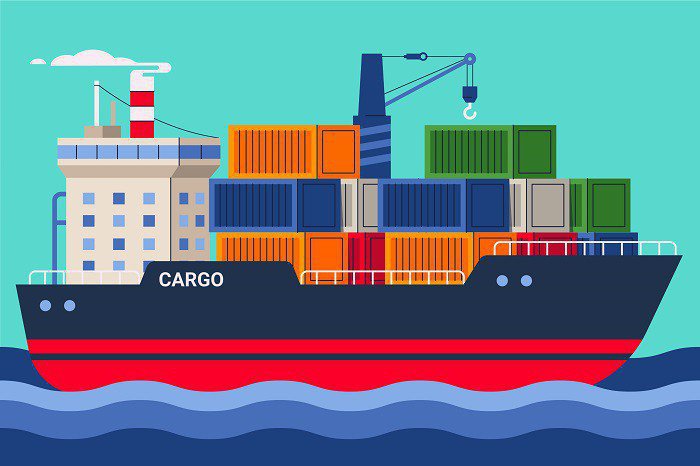
The ocean freight industry is no stranger to challenges, but the convergence of the Red Sea crisis and peak shipping season has presented a unique set of hurdles for stakeholders in the global supply chain. As the industry grapples with unprecedented disruptions, the need for a robust container plan has become more evident than ever. In this article, we will explore the intricacies of the Red Sea crisis, delve into the dynamics of the peak shipping season, and discuss strategies for effective container management.
Understanding the Red Sea Crisis
The Red Sea crisis, characterized by geopolitical tensions and maritime security concerns, has significantly impacted the flow of goods through one of the world's most crucial trade routes. The region, home to major shipping lanes, has witnessed an escalation of conflicts, posing threats to vessels and their cargo. This has led to heightened security measures, delays, and rerouting, creating a ripple effect throughout the supply chain.
Impact on Ocean Freight
The repercussions of the Red Sea crisis extend beyond regional concerns, impacting the global ocean freight industry. Shipping companies are facing increased operational costs due to the need for enhanced security measures, longer routes, and potential insurance premiums. Delays in cargo transit times have become a common occurrence, leading to supply chain disruptions and additional expenses for both shippers and consignees.
Prolonged Transit Times Amplify Supply Chain Challenges
Container availability plays a pivotal role in understanding the challenges faced by the ocean freight industry. Despite a downturn in manufacturing orders, the prolonged transit times associated with the Red Sea crisis and peak season congestion delay the return of containers to manufacturers. These crucial containers are instrumental for transporting U.S. imports, and the extended periods spent at sea contribute to a significant backlog. According to the latest data from Sea-Intelligence, prolonged transit increases global twenty-foot equivalent unit (TEU) miles by a staggering 16%. This data underscores the compounding effects of delays on container availability, creating a ripple effect throughout the supply chain and impacting the timely movement of goods across borders. Addressing this bottleneck is integral to any effective container plan in the current landscape.
Peak Shipping Season Dynamics
Simultaneously, the industry is grappling with the challenges posed by the peak shipping season. Traditionally occurring in the months leading up to the year-end holidays, the peak season sees a surge in consumer demand, prompting a higher volume of goods to be transported across oceans. This annual spike in shipping activity places additional stress on an already strained global supply chain.
Planning Ahead for Peak Season
Given that July to October is a traditionally busy period in the ocean freight industry, it is crucial for businesses to plan their shipments well in advance. Proactive planning allows for better negotiation of rates, securing space on vessels, and avoiding last-minute surcharges. By planning ahead, businesses can mitigate the impact of peak season challenges and ensure the timely and cost-effective transportation of goods.
Container Shortages and Congestion
Compounding the situation, the ocean freight industry is experiencing container shortages and port congestion. The imbalance between the supply and demand for shipping containers has resulted in delays, increased freight rates, and a logistical bottleneck. The Red Sea crisis exacerbates these challenges, making it imperative for industry players to devise a comprehensive container plan.
Strategies for Effective Container Management
Diversification of Shipping Routes:
- In response to the Red Sea crisis, consider diversifying shipping routes to mitigate risks associated with geopolitical tensions.
- Explore alternative routes that minimize exposure to high-risk areas while maintaining efficiency in transit times.
Optimizing Container Allocation:
- Implement advanced analytics and forecasting tools to optimize container allocation during peak seasons.
- Collaborate closely with shippers to understand demand patterns and allocate containers strategically to high-priority shipments.
Enhanced Security Protocols:
- Work closely with international maritime authorities and security agencies to stay updated on the evolving situation in the Red Sea region.
- Implement enhanced security protocols for vessels, containers, and port facilities to safeguard shipments and personnel.
Collaborative Efforts in the Supply Chain:
- Foster collaboration within the supply chain by improving communication and coordination among stakeholders.
- Establish contingency plans and share information transparently to address challenges collectively.
Investment in Container Fleet:
- Consider investments in expanding container fleets to address the ongoing shortage and accommodate the increased demand during peak seasons.
- Evaluate the feasibility of long-term partnerships with container manufacturers to ensure a stable supply.
Conclusion
The Red Sea crisis and peak shipping season present formidable challenges for the ocean freight industry. By developing and implementing a comprehensive container plan, industry players can navigate these challenges more effectively. The need for flexibility, collaboration, and strategic foresight has never been more crucial. As the industry adapts to the evolving landscape, it is essential to prioritize security, optimize operations, and invest in sustainable solutions for long-term resilience. Only through proactive measures and a united effort can the ocean freight industry successfully weather the storm and ensure the smooth flow of goods across the seas.





 Get instant quote
and compare offers in real time
Get instant quote
and compare offers in real time